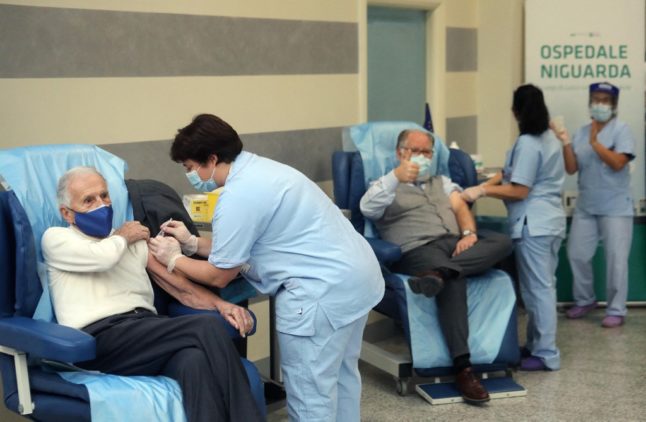This is in line with what Nehammer’s predecessor Alexander Schallenberg said when he first announced the lockdown, saying it would last a “maximum” of 20 days. You might see three different dates used to talk about the end of the lockdown: Saturday, December 11th is the last day the measures will apply meaning the 12th is the first day without them, but due to Austria’s Sunday closing laws December 13th has also been called the ‘re-opening’ day.
But there was some scepticism the original timeframe would be kept to, particularly after previous lockdowns have been extended.
Lockdowns are such a stringent measure that under Austrian law they can only be introduced for ten days at a time, after which the government has to extend them based on a review.
IN PICTURES: Life in Vienna under new Austrian lockdown
So what next?
When the nationwide general lockdown is lifted, as things stand, Austria is set to keep lockdown rules in place for unvaccinated people only. This has been in place since November 15th, and means that proof of 2G (vaccination or recovery from Covid) is required to leave home for non-essential reasons, or to access non-essential businesses including many retail stores and restaurants.
For people with proof of 2G, Nehammer said discussions were still underway on exactly what measures would apply, so it may not be a complete return to the situation before the lockdown. This could mean anything from an evening curfew to extended 2G rules or mask mandates, or even some parts of society continuing to remain shut by law. The details will be hashed out during talks between the government, opposition parties, regional leaders and relevant experts over the next few days.
Regions may also introduce their own measures going beyond those in place nationally. Upper Austria has already said it will have a full lockdown in place until December 17th, about a week longer than the national lockdown, due to the severity of the Covid situation in the region.
Vienna’s mayor also shared details for the roadmap in the capital region, which will continue to have more stringent measures than those applicable nationwide. In Vienna, the following services are set to open from December 13th: retail, Christmas markets (with take-away only for food and drink), culture and sport, and services with close physical contact (like hairdressers and beauty salons). Gastronomy (restaurants and cafes) and hotels will not re-open until a week later on the 20th. It is still not certain when night gastronomy (pubs, bars and clubs) will re-open.
READ ALSO: What’s the latest on Austria’s compulsory vaccine plan?
The Covid incidence rate has fallen sharply during the lockdown, but regional differences remain and the situation is still more severe in the west than the east of the country.
The number of Covid-19 patients in intensive care nationwide is also high at over 600, but most experts expect this to drop towards the middle of the month since there is usually a lag of two to three weeks before changes in incidence rates are reflected in intensive care admissions.
The far-right Freedom Party (FPÖ) have called for a demonstration against Austria’s Covid restrictions on Saturday in central Vienna, where thousands of protestors have been gathering weekly.



 Please whitelist us to continue reading.
Please whitelist us to continue reading.
Member comments